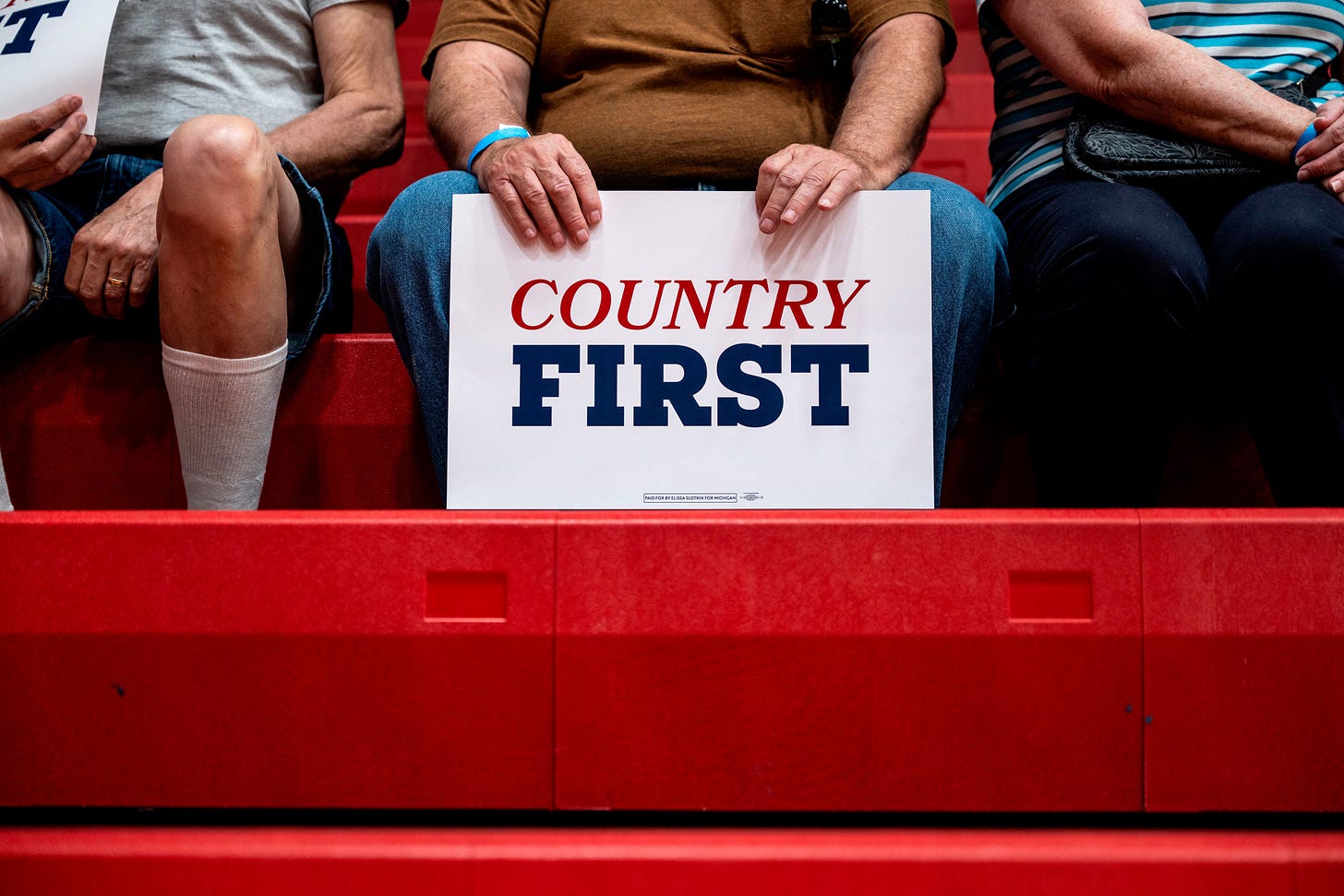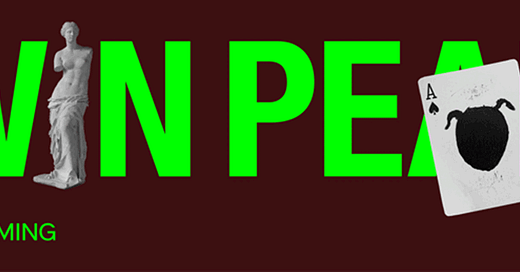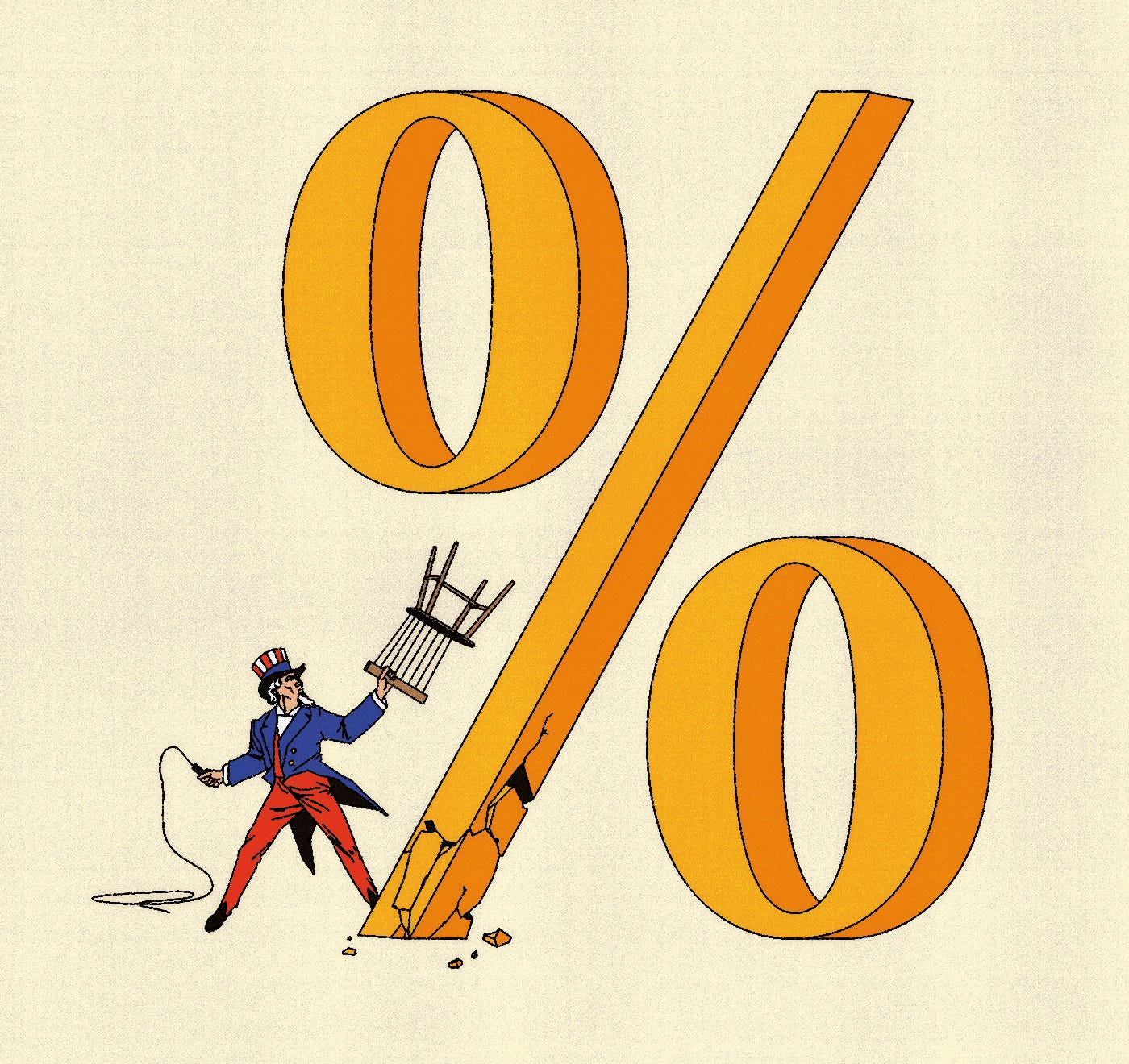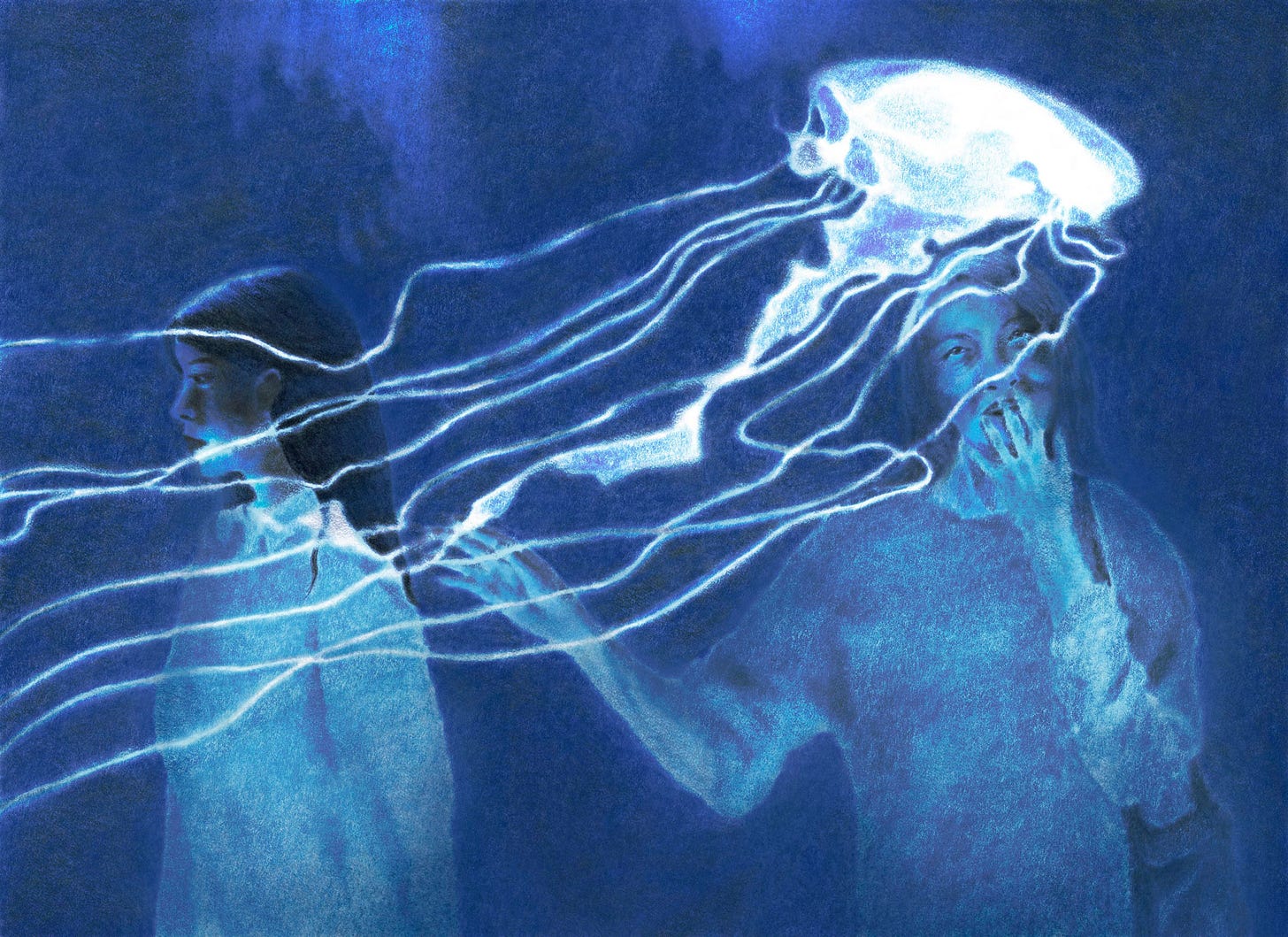Inside the August 2025 Issue
Andrew Cockburn on the future of the Democratic Party, Michael W. Clune on AI facial recognition, Mary Childs on the U.S. Treasury market, and more.
Our August issue includes Andrew Cockburn on the future of the Democratic Party; Michael W. Clune on AI facial recognition; Mary Childs on the U.S. Treasury market; a memoir from Souvankham Thammavongsa; Katie Kitamura on Yuko Tsushima; Samuel Moyn on the war in Ukraine; and fiction by Amie Barrodale.
[Report]
Playing Dead
Do the Democrats really want reform?
By Andrew Cockburn

On April 25, the same day that FBI agents arrested a Wisconsin judge and ICE deported a cancer-stricken four-year-old U.S. citizen to Honduras, I arrived in Grand Island, a city of some fifty thousand in the heart of rural Nebraska, for a People’s Town Hall. It was part of a series of such events promoted by the national Democratic Party to channel grassroots outrage over the Trump Administration’s unbridled assaults on the fabric of American government, an outrage most forcefully demonstrated by the massive crowds turning out for the Fighting Oligarchy rallies—which started in Nebraska—assembled by Bernie Sanders and Alexandria Ocasio-Cortez. Congressional Republicans, who had experienced an unwelcome taste of popular discontent at their own formerly placid town halls, were now under orders from party headquarters to avoid such encounters. “If they won’t talk to their own voters, then Democrats will,” announced Ken Martin, the newly installed chair of the Democratic National Committee. “That’s why we’ll be hosting People’s Town Halls in all fifty states across the country, starting now with vulnerable GOP-held target districts.”
[Essay]
Your Face Tomorrow
The puzzle of AI facial recognition
By Michael W. Clune
What links these three different scenes of facial capture—in Yin’s lab, in the CVS, in the West Side of Chicago jail? These different systems—the state, local, and federal police agencies; the U.S. State Department; the actual and possible end users of facial-recognition technology—are not oriented toward what is inside me. They’re not trying to capture my thoughts or feelings or words. They are oriented toward my actions.
Each system is designed to match a given action—a drug offense, a violation of customs or immigration law, an appearance at a party that someone is recording for an Instagram video—to a given name. My name.
This is the truth embedded in the term “faceprint.” It’s like a thumbprint: a pattern unique to one individual, the trace someone might leave in every space he traverses. Thinking of an image of your face as somehow analogous to your thumbprint leads to serious mental vertigo. Take a look at your thumb. Now look at your face in the mirror. Imagine your neck terminating in a giant thumb.
To understand how one’s face can become as neutral, as objective, as expressionless as one’s thumb, is to grasp the key difference between the regime of facial recognition and the regime of everyday expressive facial control.
[Revision]
Debt Reckoning
Has the Treasury market started to crack?
By Mary Childs
The debt of the U.S. government has a special, almost holy place in global finance. Its primacy is based on decades of trust in institutions; in adequate but not excessive regulation that maintains an orderly and predictable market; in a transparent and independent judiciary; in rich citizens who pay their taxes. The U.S. government has never materially defaulted. Because of that trust, and the surprisingly durable largesse of the American consumer, the market for Treasuries has become the biggest and most liquid sovereign-debt market in the world, in which hundreds of billions of dollars trade every day. This has a virtuous-circle effect: because Treasuries are so easy to buy and sell, and the market is so big that investors can trade enormous blocks of debt without it reacting much, people feel all the more confident in the asset. Treasuries are as good as cash. And as a borrower, the United States has been seen as risk-free. That confidence itself confers a benefit, in which rates are fantastically low for “risk-free” borrowers like us. On trillions of debt, those savings quickly become real money.
[Memoir]
The Poison That Tastes Like Home
On a mother’s consuming love
By Souvankham Thammavongsa
My mother wants to see my brother again. “Just once more in this lifetime,” she says. Since she, at sixty-four, cannot get pregnant again, she thinks I can be the one to give birth to him. I do not want to have children, but I do want to have my brother come back again.
[Fiction]
In the Cave of the Skull
By Amie Barrodale
I pushed myself to where the ceiling was higher. Even though I was off course, I wanted to breathe for a second. A pebble was wedged under my breastbone, and I reached under myself to move it, and then dragged myself two times quickly.
[Reviews]
Into the Vortex
By Katie Kitamura
In Territory of Light, more than in almost any of Tsushima’s novels, the world outside the self is clearly observed and depicted, but the longer you dwell inside the novel, the more it feels like the wallpaper inside the narrator’s mind.
[Reviews]
Casus Belli
By Samuel Moyn
What is remarkable is how many on both sides of the political divide have, since the dissolution of the U.S.S.R., cautioned against rubbing salt in the wound of Russia’s loss of global status, which left the world’s largest country with little more than oil, nukes, and grievances.
Order the August issue at store.harpers.org












